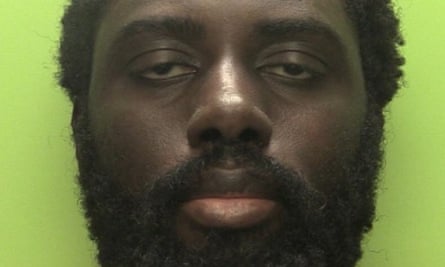It was described as “one of the darkest days in the city’s history”. Three people stabbed to death on the street, and three more seriously injured after being mowed down by a van, in a seemingly random rampage of destruction that left Nottingham, and the country, reeling.
Thousands of people attended vigils in the days after the attacks, many standing in silence with tears in their eyes as the families of the victims described their devastation at losing their loved ones in such a sudden, brutal way.
The attacks began as dawn broke in Nottingham on Tuesday 13 June last year. The streets were quiet, apart from young people returning home from a night out, or workers heading to their early shifts. These were the people who became Valdo Calocane’s victims.
Grace O’Malley-Kumar and Barnaby Webber, both 19-year-old students, were only yards away from their halls of residence after a night out at the Pryzm nightclub with friends. It was the end of term, the weather was warm and CCTV footage showed them chatting as they walked down the street in the early morning light.
Calocane, who had been pacing the streets for several hours, hid out of sight before following them and stabbing Webber multiple times. It happened on a densely populated street and several people heard O’Malley-Kumar’s screams, and saw Calocane, dressed all in black, run away.
“There’s been a stabbing. There’s somebody lying in the street, I think they’re dead. Oh, that was awful,” said the first of many 999 calls to the Nottinghamshire police control room that morning.
CCTV showed O’Malley-Kumar had the opportunity to run away, but she bravely tried to fight Calocane, grappling with him for more than 30 seconds. In the end he overpowered her, stabbing her repeatedly, before he returned to inflict more violence on Webber lying in the road.
The prosecutor Karim Khalil KC described the assaults as “uncompromisingly brutal” – a postmortem found 10 areas of stabbing injury on Webber, and 23 on O’Malley-Kumar.
Calocane then made off towards Seely Hirst House, a residential home for vulnerable and homeless people in the city just over 2 miles away, or a 45-minute walk.
He was confronted by a security guard who told him to leave, and Calocane did not attack him. Instead, he tried to climb through a ground-floor open window, but a resident awoke, punched him in the face and slammed the window behind him.
Calocane walked away and soon encountered 65-year-old Ian Coates, a school caretaker just months away from retirement, on his way to work at Huntington academy.
The attack was not captured visually on CCTV but audio picked up Coates screaming and shouting: “Leave me.” It is believed he was stabbed as he sat in the driver’s seat and was dragged out on to the pavement where he bled to death.
As Coates lay there, Calocane took his van and drove into the city centre, where he drove into three pedestrians, one person crossing the road and two others on the pavement.

They were Wayne Birkett, Marcin Gawronski and Sharon Miller, who were all badly hurt but survived.
As Nottingham and the rest of the country woke up, and the horrific news started to emerge, concerns grew that the deaths were the result of a terrorist attack, and police announced they were working with counter-terrorism police.
That motive was soon ruled out, and when Calocane pleaded not guilty to murder on the grounds of diminished responsibility, his lawyers said he had been suffering from paranoid schizophrenia at the time of the attack.
The large student community in Nottingham was stunned by the loss of two people simply walking home, as many of them do every night. A graduation ball scheduled for the following day was cancelled, flags were flown at half-mast and students were offered free counselling.
Thousands of flowers and tributes were laid outside the council house, including a wreath by the then home secretary.
Seven months on and the streets of Nottingham may have returned to normal but, as was stated at the vigil attended by thousands in the aftermath of the attacks, “this city will not forget”.
On 11 January, what would have been Webber’s 20th birthday, fresh flowers and a card were placed near the spot where he lost his life. “Never in a million years did I think I wouldn’t spend your 20th birthday with you,” it read. “Missed more and more each day.”
The outpouring of grief from the families who faced Calocane in court showed the scale of suffering caused by the attacks, and anger at how a man so well known to mental health services was not stopped sooner.


Magnificent beat I would like to apprentice while you amend your site how can i subscribe for a blog web site The account helped me a acceptable deal I had been a little bit acquainted of this your broadcast offered bright clear idea